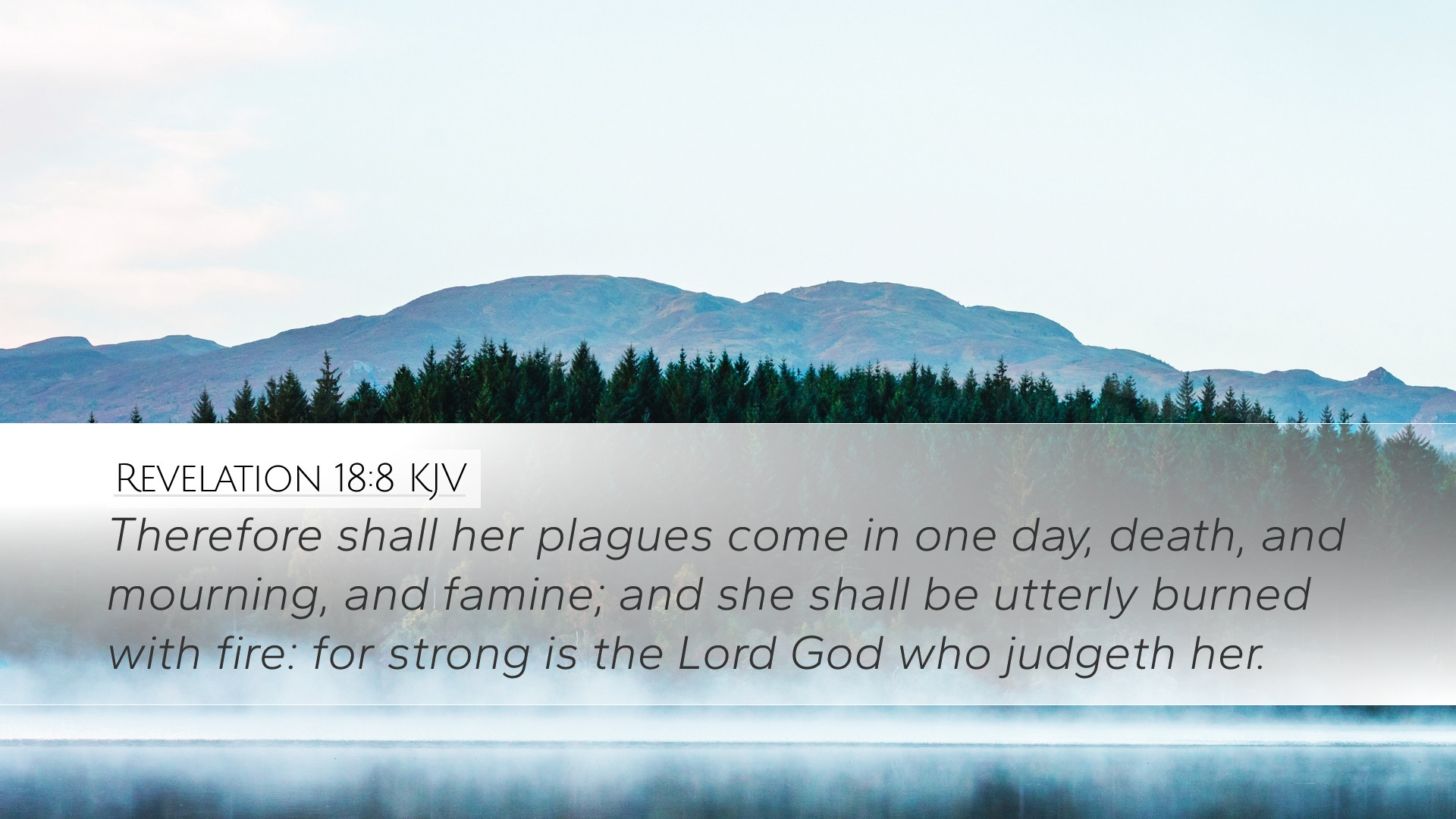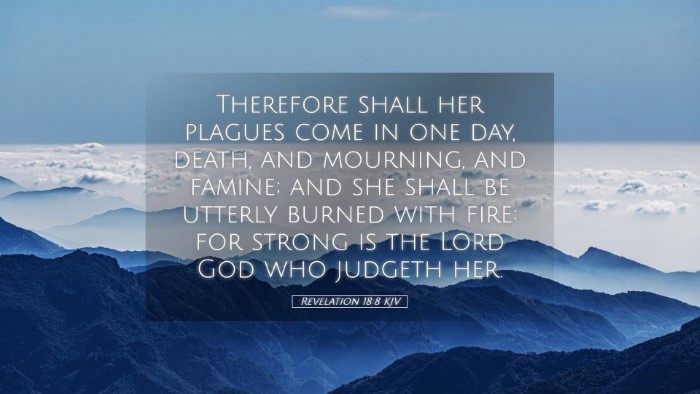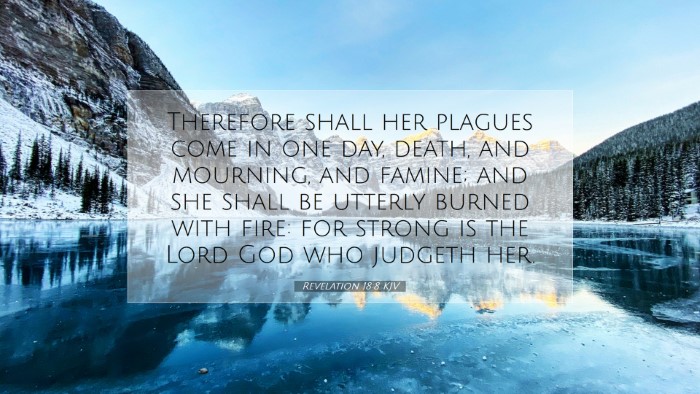Commentary on Revelation 18:8
Verse Context: Revelation 18:8 states, "Therefore shall her plagues come in one day, death, and mourning, and famine; and she shall be utterly burned with fire: for strong is the Lord God who judgeth her." This verse is part of a larger discourse on the fall of Babylon, representing the sinful world system opposed to God.
Introduction
The verse encapsulates the divine judgment that will befall Babylon, highlighting the severity and immediacy of God's retribution. The public domain commentaries provide a depth of understanding and insight into this prophetic declaration. Below, we will explore key themes and interpretations from Matthew Henry, Albert Barnes, and Adam Clarke. Their perspectives enrich our understanding of God's sovereignty, judgment, and the nature of sin.
1. God's Sovereignty and Judgment
Matthew Henry's Perspective: Henry emphasizes the sovereign authority of God in executing judgment. He remarks that the plagues coming "in one day" signify a swift and decisive action from God. This is not merely an act of wrath but a fulfillment of divine justice against iniquity. The summary execution of judgment serves as a warning to the rebellious and a reassurance to the faithful.
Albert Barnes' Insights: Barnes elaborates on the certainty of God's judgment. He asserts that the coming plagues are a portrayal of God's righteous indignation against sin. The phrase "strong is the Lord God" illustrates that no power can thwart God’s plans. Barnes considers the imagery of destruction—mourning, famine, and fire—as not only relevant to the literal fall of Babylon but symbolically extending to all who oppose God's will.
Adam Clarke's Analysis: Clarke interjects with a view on the implications of divine judgment. He contextualizes the urgency of the judgment by linking it to the fulfillment of prophetic warnings throughout Scripture. Clarke indicates that the destruction of Babylon is emblematic of the finality of God’s decisions; the world’s allure fades in the face of divine accountability.
2. The Portrayal of Plagues
The description of plagues invokes a profound understanding of human suffering as a consequence of sin. Each aspect of mourning, famine, and fiery judgment speaks to both literal and spiritual desolation.
- Mourning: The sorrow associated with the loss of what was held dear and the finality of rejection from God.
- Famine: Reflecting spiritual starvation, this symbolizes the absence of God's sustenance and blessings in the lives of those who have turned away.
- Fire: A potent symbol of purification and destruction; fire signifies both judgment and the potential for a new reality after destruction.
3. Theological Implications
Understanding Sin's Consequences: Pastors and theologians are compelled to recognize the grave implications of sin as illustrated in this passage. The fall of Babylon serves as a stark reminder that all systems opposed to God will face ultimate judgment. The severity of the plagues underscores the notion that God's patience has limits.
Calling to Repentance: Within this judgment narrative lies an urgent call for repentance. As indicated by the commentaries, the faithful are encouraged to detach from worldly enticements and embrace a life aligned with God’s principles. This serves both as a warning and an encouragement for believers to maintain their faith amidst a corrupt world.
4. Encouragement for Believers
Despite the grim portrayal of judgment, this passage ultimately functions to bolster the faith of believers. Knowing that God is "strong" reassures the faithful of His control over history and His unwavering commitment to justice.
- Hope in God's Justice: The ultimate fall of oppressive systems reaffirms that God’s justice prevails. Believers are reminded that their struggles against evil are not in vain.
- The Promise of Restoration: While destruction is imminent, the promise of a new heaven and earth following this judgment brings hope to the faithful. God’s justice will lead to the restoration of His order.
5. Conclusion
In conclusion, Revelation 18:8 serves as both a declaration of God's sovereignty and a sobering reminder of the realities of divine judgment. As elucidated by esteemed commentators, it challenges believers to consider the ramifications of sin, the responsibilities of faith, and the unshakeable promise of God’s ultimate justice.
This passage, while stark, invites deep reflection on the nature of God’s holiness. It calls the church to vigilance, prompting pastors, students, and theologians to engage actively in discussions about sin, judgment, and the hope that transcends worldly despair.


